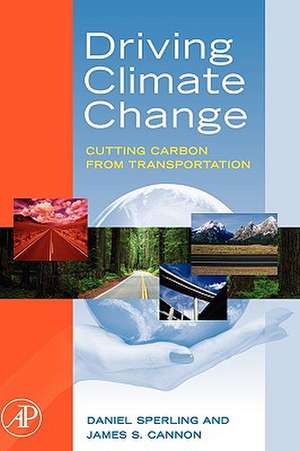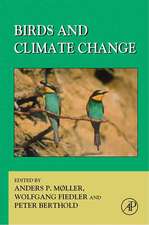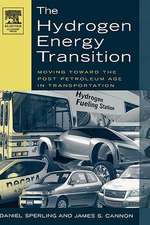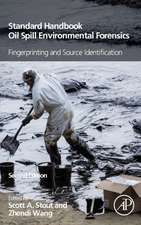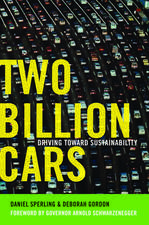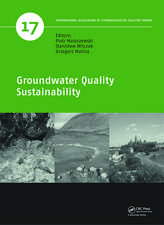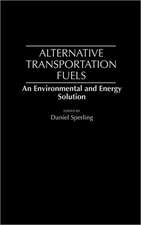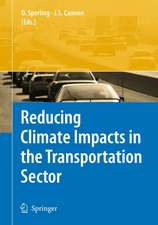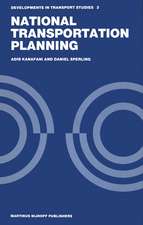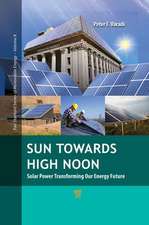Driving Climate Change: Cutting Carbon from Transportation
Autor Daniel Sperling, James S. Cannonen Limba Engleză Hardback – 16 oct 2006
Driving Climate Change will provide professionals and students alike with the latest information regarding greenhouse emissions while presenting the most up-to-date techniques for reducing these emissions. It will investigate three broad strategies for reducing greenhouse gas emissions: 1) reducing motorized travel, 2) shifting to less energy intensive modes, and 3) changing fuel and propulsion technologies. Findings will be presented by the leaders in the field with contributions from professors, researchers, consultants and engineers at the most prominent institutions - commercial, academic and federal - dealing with environmental research and policy.
- Includes a comprehensive evaluation of current industrial practice
- Provides technologically sound and manageable techniques for engineers, scientists and designers
- Incorporates guidelines for a sustainable future
Preț: 427.43 lei
Preț vechi: 555.11 lei
-23% Nou
Puncte Express: 641
Preț estimativ în valută:
81.80€ • 88.82$ • 68.71£
81.80€ • 88.82$ • 68.71£
Carte tipărită la comandă
Livrare economică 22 aprilie-06 mai
Preluare comenzi: 021 569.72.76
Specificații
ISBN-13: 9780123694959
ISBN-10: 0123694957
Pagini: 312
Ilustrații: Illustrated
Dimensiuni: 152 x 229 x 22 mm
Greutate: 0.62 kg
Editura: ELSEVIER SCIENCE
ISBN-10: 0123694957
Pagini: 312
Ilustrații: Illustrated
Dimensiuni: 152 x 229 x 22 mm
Greutate: 0.62 kg
Editura: ELSEVIER SCIENCE
Public țintă
Environmental professionals, engineers, scientists, policy-makers; energy and transportation professionals - researchers and managers.Cuprins
Acknowledgements; Preface; Introduction and Overview; Peaking of World Oil Production and Its Mitigation; Toward A Policy Agenda For Climate Change: Changing Technologies and Fuels and the Changing Value of Energy; Coordinated Policy Measures for Reducing the Fuel Use of the U.S. Light Duty Vehicle Fleet; Carbon Burdens from New Car Sales in the United States; Reducing Vehicle Emissions through Cap-and-Trade Schemes; North American Feebate Analysis Model; Reducing Growth in Vehicle Miles Traveled: Can We Really Pull It Off; International Comparison of Policies to Reduce Greenhouse Gas Emissions from Passenger Vehicles; Reducing Transport-Related Greenhouse Gas Emissions in Developing Countries: The Role of the Global Environmental Facility; What Multilateral Banks (And Other Donors) Can Do To Reduce Greenhouse Gas Emissions: A Case Study of Latin America and the Caribbean; From Public Understanding to Public Policy: Public Views on Energy, Technology & Climate Science in the United States; Narrative Self-Identity and Societal Goals: Automotive Fuel Economy and Global Warming Policy; Lost in Option Space: Risk Partitioning to Guide Climate and Energy Policy; Towards a Transportation Policy Agenda for Climate Change;Appendix A: About the Editors and Authors; Appendix B: Asilomar Attendees List for 2005
